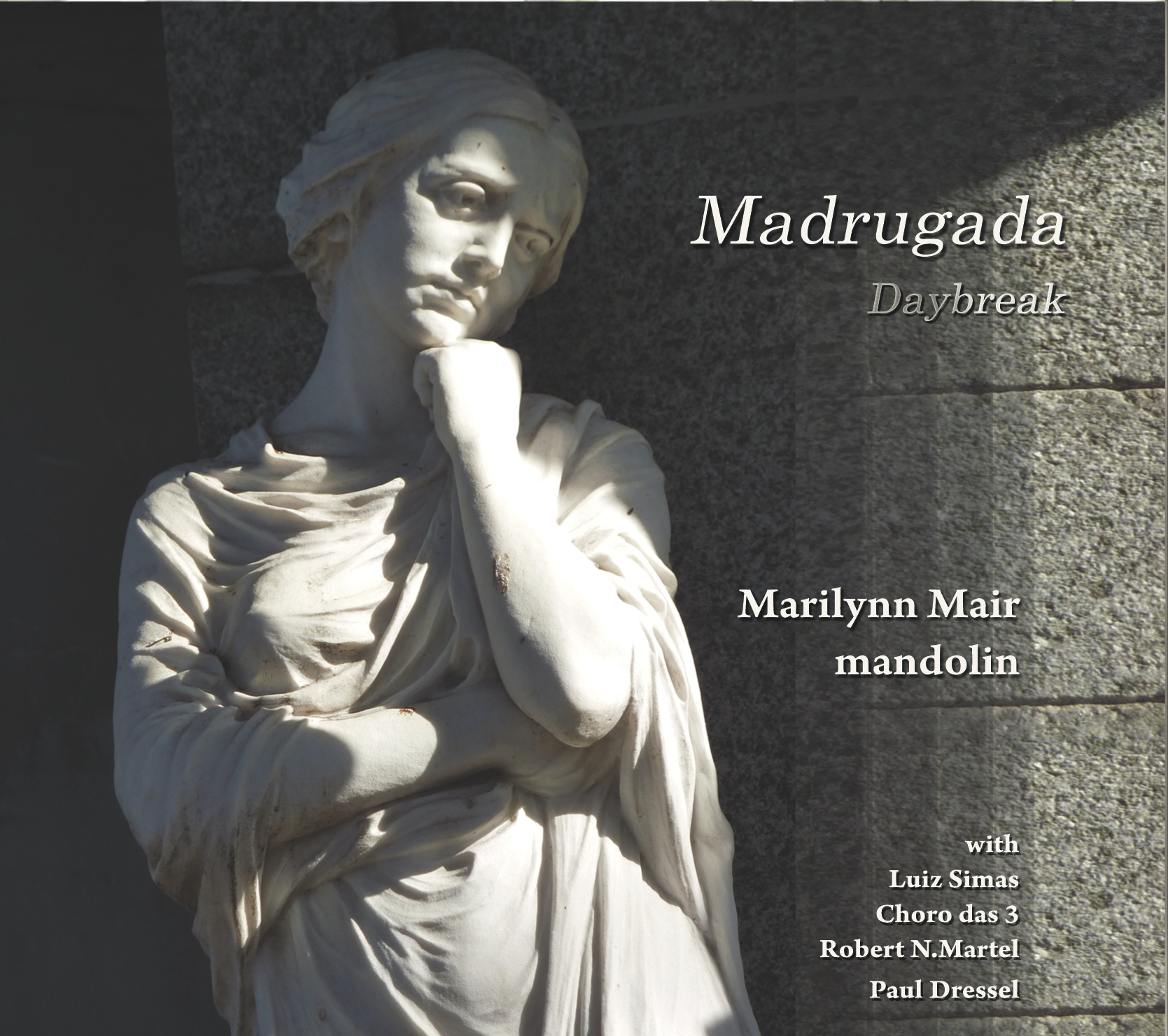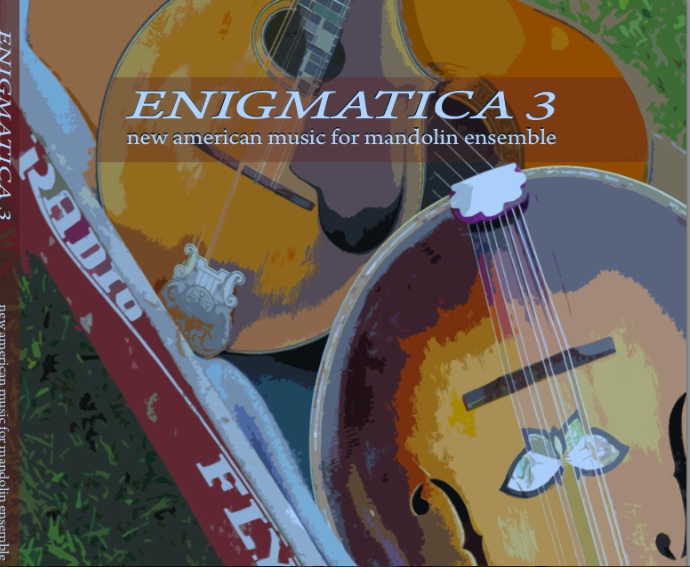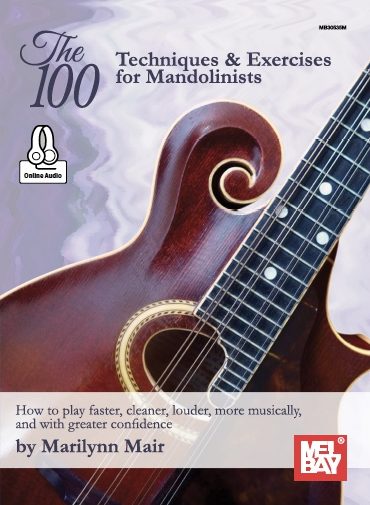based on an article that originally appeared in “Mandolin Quarterly,” 2003, Vol. 8 Nr. 4.
Download a pdf the sheetmusic that accompanies this article: NaoSeImpressione
Chiquinha Gonzaga is a great hero of mine, as much for her independent spirit and devotion to her musical career, as for her compositions. She earned her living as a professional pianist, a popular composer, and a respected conductor at a time when middle-class women were generally confined to domestic endeavors and subject to their husbands’ rule. She was one of the early composers and performers of Brazilian choro, and her “Grupo Chiquinha Gonzaga,” recorded numerous hit records in the early 20th century.
She pioneered nationalization in Brazilian musical theater and was a great success, even though her works were not produced at first simply because she was a woman. In addition to her musical endeavors, Gonzaga, a mulatto, also played a significant role in the fight to end slavery and racial discrimination in Brazil. She sought equality and a life in music, and overcame personal hardship to make an indelible mark on Brazilian musical style.
Chiquinha Gonzaga was born Francisca Hedwiges Gonzaga do Amaral, in Rio de Janeiro on October 17, 1847. She was the illegitimate child of a mulatto mother and an upper-class father, but her father recognized her as his own, over the strong objections of his family. She received an education and grew up surrounded by music, showing great talent on the piano and writing her first piece when she was 11. At her father’s wishes she was married off at age 16, and given a piano as a dowry. She bore three children in the unhappy marriage, sustained by her piano, until her jealous husband demanded that she choose between him and her music. She did, and left, an unheardof act in Brazil in the 19th century. Scandalized, her father reneged his paternity and declared her dead, and her husband denied her access to her children.
Chiquinha, now on her own, earned her living as a piano teacher and musician. She was helped by her friend Joaquim Antnio da Silva Calado Jr. (184880), a flautist, composer, and founder of the group “Choro Carioca”. He invited her to play piano with his ensemble at dances and in theaters, and she began to work and play music with chores, usually lower-class bohemian musicians. In 1877 she wrote “Atrahente,” designated as a polca, but clearly attempting to reproduce the improvised performance style of choro. It was so popular that 15 editions of the work were published that year alone. “In the evolution of urban dance in Rio de Janeiro, Francisca Gonzaga played an important role because she blended and recreated the essence of the authentic chros and serenades with the prevailing European dances.” (Grard Bhague, “Popular Music Currents in the Art Music of the Early Nationalistic period in Brazil, circa 1870-1920,” p. 129).
By the time of Calado’s early death, at age 32, Chiquinha had established her own career. She continued to incorporate Afro-Brazilian influences into her music and became recognized in musical circles as a strong proponent of the new style of choro. Her compositions gained much success by the turn of the century, and she is perhaps most famous for writing, in 1899, the first official march of Brazilian Carnaval, “Ó Abre Alas!” Gonzaga also succeeded in nationalizing Brazilian musical theater, creating librettos that drew from lower-class slang, and music based on native dance forms and choro. She wrote “teatro de revista,” a popular year-in-review type of theater with high-energy music, and it took several attempts before she could break into the male-only ranks of musical theater composers and actually have her works produced.
Even when she did, her efforts, though popular, met with frequent outrage for her inclusion of lower-class Afro-Brazilian musical styles. Her 1885 work, “A Corte na Roça,” ended with a maxixe, a suggestive Afro-Brazilian dance form, that got the piece censored by the police. She flaunted her notoriety throughout her career, giving her pieces titles like “Seductor,” “Satan,” and “Não insistas, rapariga!” (Don’t Insist, Wench!)
In 1914, a performance of her 1895 operetta, “Corta-Jaca,”at the Presidential palace in Rio caused a national social scandal. But eventually Gonzaga’s music, judged on its merits, won respect and praise from those who once shunned her. Chiquinha Gonzaga despite great obstacles, lived the musical life she had envisioned, continuing to perform, compose, and conduct until her death in 1935.
“Forrobodó,” written in 1912, was Gonzaga’s most successful theatrical work, with 1500 performances staged throughout Brazil by 1925. It featured choro music and musicians prominently, and I’m including a lead sheet for a piece from the operetta that achieved success on its own. “Não se impressione” (Don’t Be Impressed) is a lively tune that concludes the operetta’s first act. Be sure to accompany the tune with the characteristic choro rhythm (16th-8th-16th / 8th-8th) and be aware of the implied descending bass line (F, E, D, C sharp, B flat) that runs through the first 5 measures.




